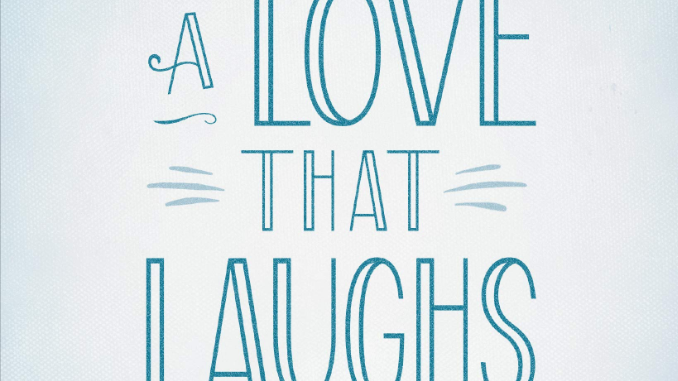
Published by Tyndale on February 4, 2020
Genres: Non-Fiction, Christian Life, Marriage
Buy on Amazon
Goodreads

One of the secrets of a great marriage is laughing together. Couples don't need to choose between work and play, duty and fun, laughter and responsibility. This book will help couples learn how to use fun, humor, and laughter to lighten the load of everyday life, reduce stress, and grow closer together.
Shared humor is pretty much the foundation of my relationship with my wife. That’s not a joke. In 2010, three years before we were married, we both attended a Ted Dekker event where she one an exclusive first-draft copy of Ted’s then-latest novel, The Bride Collector. It came with one condition: only you or your immediate family is allowed to read this.
So, naturally, that evening—having failed in my attempt to get her dad to adopt me, I dropped to one knee and proposed. It was hilarious. It was all in good fun. (It’s on video, somewhere…) Three years later, she’s got me walking down the aisle with her. Guess the joke was on me.
A Love That Laughs isn’t a typical marriage book. It doesn’t try to dig out your love languages or focus on crazy cycles or determine your enneagram or whatever. In fact, its advice is rather simple: laugh.
I knew from page one I would be enjoying this book. Ted Cunningham, author of the book and pastor at Woodland Hills Family Church in Branson, develops his relationship philosophy much in the way a comedian would develop a script. Early on, he talk about the need for “callbacks.” In comedy, this is when a comedian unexpectedly ties in an earlier punchline in a later bit. In marriage, in shared memories that—hopefully humorously—put a current scenario into perspective.
The second chapter is pretty straightforward: Thirty-eight benefits of laughter. It’s a blow-by-blow set of paragraphs meant to convince you that laughter is good in so many different ways. This sets up the foundation for the material that follows. I wish that Cunningham had spaced these out more. The punchiness of this chapter quickens the pace and leaves the rest of the book feeling slow by comparison. It’s as if Cunningham uses up his best material in the first five minutes of a 30 minute set and is left adrift the latter parts of the book.
Cunningham is at his best when he’s riffing off his own life (and wife!) to illustrate the principles he’s teaching, whether it’s types of humor, or being sure it’s time for humor, or anything else. When he moves into other people’s material—telling Ye Olde Church Sign and Bulletin jokes—I give a chuckle, but it’s out of pity.
Chapter seven, Four Habits of Highly Effective Couples, is a particularly good example of Cunningham making his point well. Habit 1: Play as teammates, not opponents. Habit 2: Resolve anger quickly. Habit 3: Prioritize quality couple time. Habit 4: Speak words of high value. They are all serious points, but Cunningham illustrates them with humor and wit.
Each chapter ends with a challenge. You’re given a scenario and a possible point total. Your goal? See how hard you can get your spouse to laugh. Your mileage might vary on this one. Personally, I don’t even have to do the scenario to know how my wife would respond. A Love That Laughs is a nice change of pace from the “typical” marriage books. A solid, helpful reminder that living, laughing, and loving are the things angels wish they could look into. (You won’t get it, but my wife will!)
P.S. Dear Mr. Cunningham, I wish for you to know that my wife insisted on referring to you as Theodore Clever Pig for the duration of time it took me to read this book. What’s the clever pig say about marriage tonight? I apologize for this.
